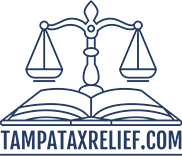
Tax Attorney Brian T. Loughrin successfully helps taxpayers stand up to the IRS.
Tampa Liens & Levies Attorney
What's The Difference Between a Lien and a Levy?
The simple difference between a lien and a levy is their effect on the property you own. A lien is a claim registered against property for not paying taxes.
Understanding Liens and Levies in Tampa
Does a Lien Come Before a Levy?
Yes, a levy comes after a lien has been filed. A levy happens because the taxpayer fails to satisfy the lien within a certain period of time.
Liens do not take away a taxpayer's property or the right to sell or transfer ownership of the property. A levy is a seizure, it takes your property and transfers ownership to the government. For experienced help with a lien or levy, Tampa IRS tax relief lawyer Brian Loughrin can help you.
For more information about tax liens and levies, contact Brian T. Loughrin Tax Attorney online or call (813) 517-8074 for a free consultation with our lawyer.
What Is A Tax Lien and How Does It Affect You?
A tax lien is one of the IRS's "enforced collection" actions where it takes aggressive steps to collect on its tax debt. Specifically, a Lien is a public notification that the IRS claims you owe them money and they have a legal claim against your property. When does the IRS file a tax lien? The IRS will send a notice of its intent to file a lien against your property to your last known address and to your local government recorder's office.
Your goal should be preventing the lien from occurring, not trying to remove one after it's in place. Once a lien is in effect, it has several negative consequences. First, the lien will likely be recorded by the major credit reporting agencies and serve as a public notice that the IRS believes you owe them money.
What Is a Levy and How Can It Impact Your Assets?
Another major consequence of a tax Lien is that if you sell the property that has a Lien filed against it, the IRS will automatically take the amount it thinks it is owed before you receive any money from the sale.
Tax Levy Details: An IRS levy can be issued on virtually any of your assets, including your money as well as any of your possessions that can be resold to pay your tax debt.
What Does Intent to Levy Mean for Taxpayers?
The intent to levy is a notice the IRS sends in the mail if it plans to seize your assets. You will only get this notice if you have large tax debt and you have not tried to resolve it. The IRS will send you a notice the first time for each tax period that it intends to collect for by taking your property.
Three Types of Levies: What You Need to Know
With a levy, the IRS can seize your property (including a portion of your wages) and your bank account could be frozen up to the amount of the levy for 21 days. You can challenge the levy, but if unsuccessful, the funds are automatically given to the IRS. If this does not work, they will garnish your wages (see wage garnishment).
Once the IRS removes funds from your bank account, garnishes your wages, or seizes your home, your car or other valuable items, it is virtually impossible to get those assets back. However, one general statement can be made about all IRS Levies; it is a clear indication that they believe you owe them a substantial amount of money, and think they have very little chance of collecting the tax debt through less aggressive means. If you have not yet consulted with a tax attorney, you should immediately!
Local Insights on Liens and Levies in Tampa
Dealing with tax liens and levies can be stressful, especially when financial stability feels uncertain. For residents of Tampa, the rising cost of living and fluctuations in the local economy can add extra layers of pressure. The City of Tampa and Hillsborough County offer resources like financial counseling services and tax assistance programs to help you manage these challenges. Still, understanding the implications of liens and levies might feel overwhelming without the right guidance.
If you receive a notice of intent to levy, it’s critical to act promptly. This notice often signals unresolved tax debts, and the consequences can be severe if not addressed. For many residents, frustration stems from unclear communication from the IRS, leaving them confused about the next steps. The good news is that you don’t have to face this alone. Local tax attorneys are available to help explain your rights and assist you in navigating the intricacies of tax law.
Tampa’s booming real estate market presents its own set of challenges when it comes to tax liens. If a lien is placed on your property, selling your home — or even refinancing — can become complicated. This is particularly concerning for homeowners in high-value neighborhoods like South Tampa or Westchase, where the IRS could claim proceeds from a sale.
By staying proactive and seeking help from local experts, you can take meaningful steps to address tax liens and levies. Whether you’re dealing with an immediate levy risk or navigating a lien on your property, Tampa offers a range of professionals and programs to help you resolve these issues and regain control of your financial future.
Have a lien or a levy? Get in touch with Brian T. Loughrin Tax Attorney at (813) 517-8074.


How To Get Rid Of An IRS Tax Lien
When dealing with a tax lien, it is crucial to seek professional advice from a qualified IRS tax lien attorney in Tampa at Brian T. Loughrin Tax Attorney who specializes in tax liens.
Here are some steps you can take to address the situation:
- Consult with a Tax Attorney: Contact an experienced lawyer at Brian T. Loughrin Tax Attorney. We offer free case evaluations and have a proven track record of successfully handling tax lien matters.
- Assess Your Options: A knowledgeable tax attorney can review your situation, evaluate the extent of the tax lien, and explore various options available to you. These may include negotiating a payment plan, applying for an Offer in Compromise (OIC), or requesting a lien withdrawal, discharge, or subordination.
The Stories That Matter
-
"He is thorough, friendly, knows the system and will get you results. I would highly recommend him to family, friend....anyone that is having tax issues. In this day and age, it is hard to know who to trust, put your trust in Brian Loughrin."Bob G.
-
"Mr. Loughrin was very successful in resolving our problems with the IRS. He was always available to answer questions and was a pleasure to work with. I would highly recommend him for representation with IRS problems."Ed W.
-
"Thanks Brian for all your hard work to prove my innocence! I would not have been able to do this without you!!"Lisa B.

-
We Offer Free Case Evaluations
-
Admitted to U.S. Tax Court
-
We Provide Personalized Attention
Whether you have questions or you’re ready to get started, our legal team is ready to help. Complete our form below or call us at (813) 517-8074.



